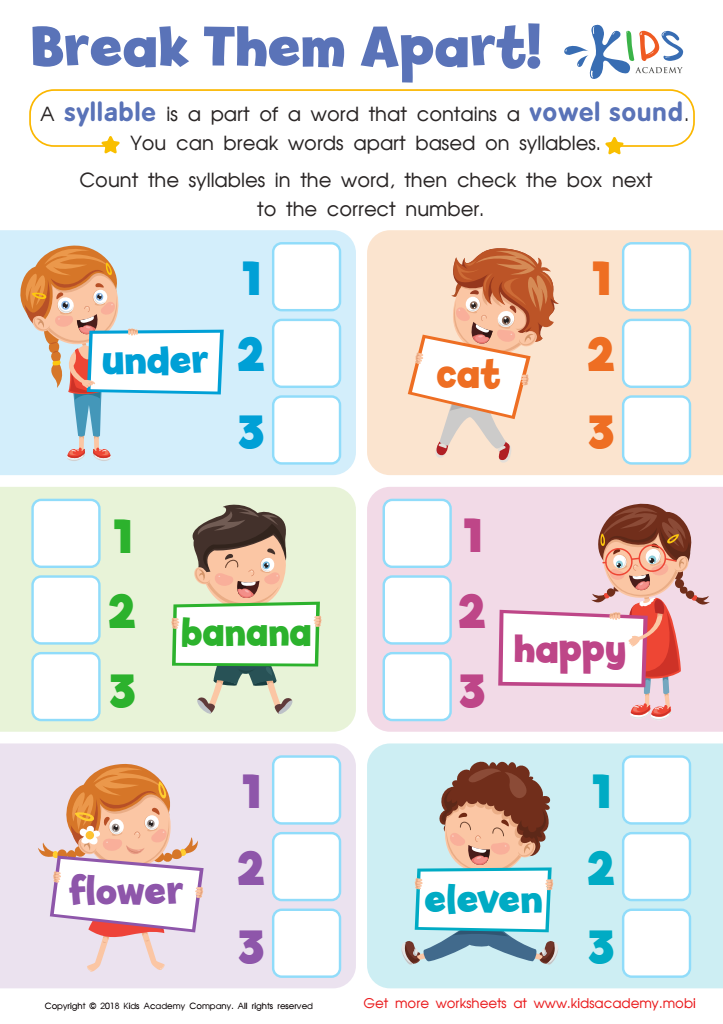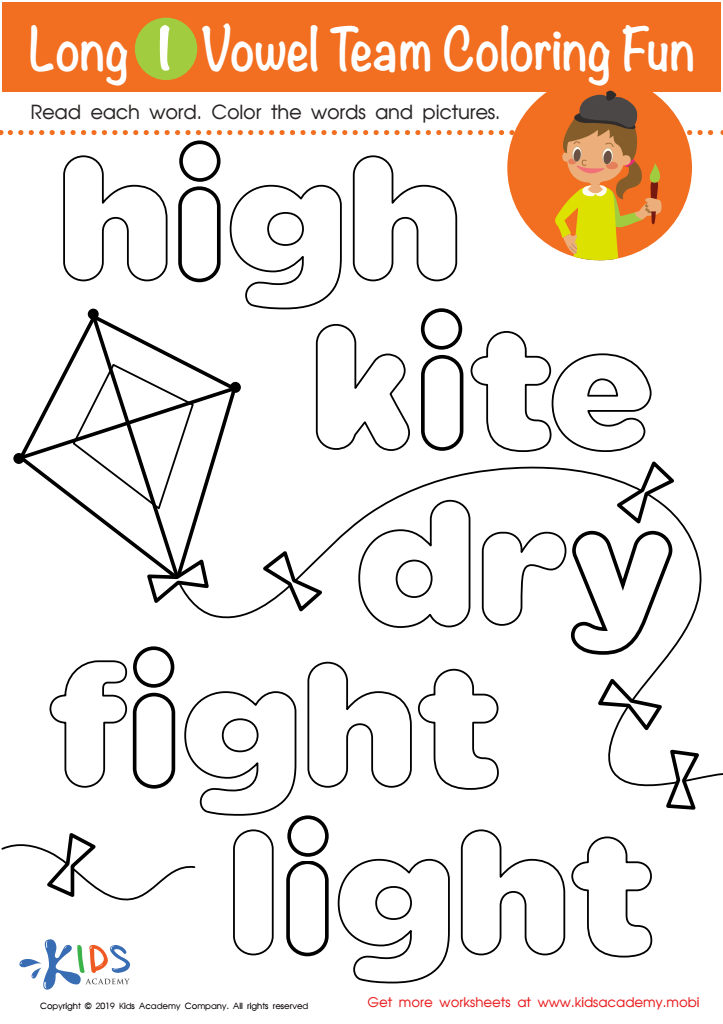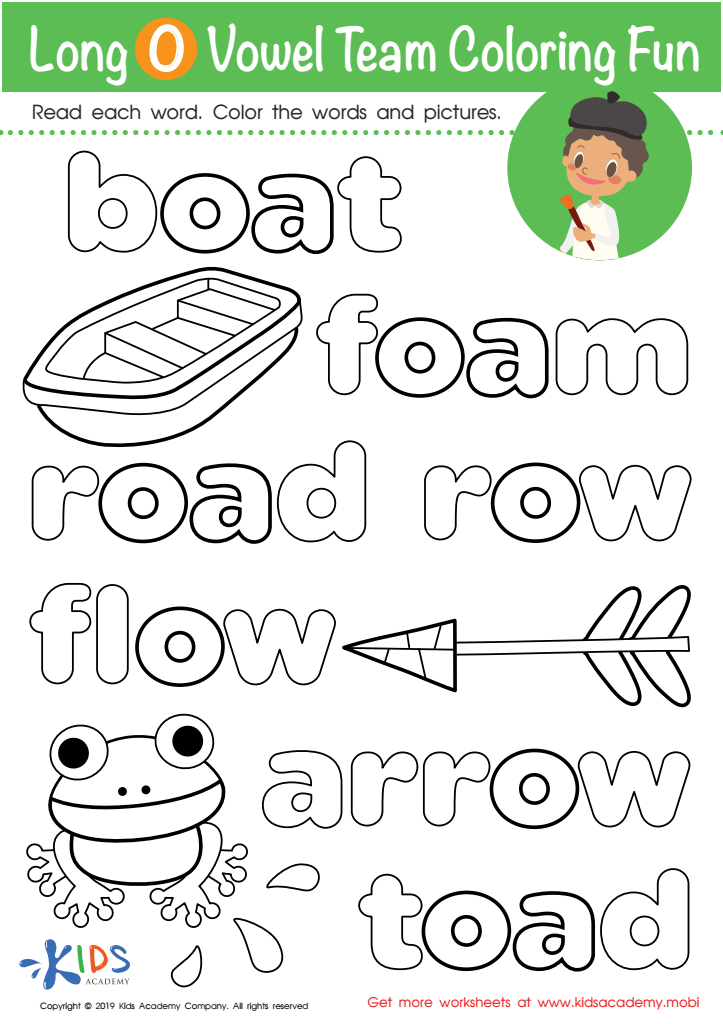Phonics Skills Normal Elementary Phonics Worksheets for Ages 4-8
4 filtered results
-
From - To
Discover our Phonics Skills Normal Elementary Phonics Worksheets designed for children ages 4-8! These engaging worksheets help young learners build essential phonics skills through fun activities that promote letter recognition, sound association, and reading fluency. Each resource encourages children to practice blending and segmenting sounds, fostering confidence as they develop their reading abilities. With colorful illustrations and interactive exercises, these worksheets make learning phonics enjoyable and effective. Perfect for classroom use or at-home practice, our phonics worksheets empower young readers to succeed. Explore our collection today to support your child's literacy journey and set them on the path to reading readiness!


Reading: Break Them Apart Worksheet


Long I Vowel Team Coloring Worksheet


Long and Short E Worksheet


Long O Vowel Team Coloring Worksheet
Parents and teachers should prioritize phonics skills for children aged 4-8 because these foundational skills are crucial for early literacy development. Phonics teaches children the relationship between sounds and their corresponding letters, arming them with the ability to decode words as they progress in their reading journey. This is particularly vital during these formative years, as strong phonics skills lead to better reading fluency and comprehension.
Additionally, phonics instruction fosters a love for reading by enabling students to make sense of new words independently. When children understand how letters combine to form sounds, they gain confidence and motivation to tackle more complex texts. This confidence carries over into other subjects, contributing to overall academic success.
Furthermore, phonemic awareness, a key component of phonics, helps children improve their spelling and writing abilities, making these skills interconnected and essential for effective communication. Intervention during this critical period can prevent future literacy challenges. Importantly, as early literacy plays a significant role in lifelong learning, supporting phonics skills helps set a strong educational foundation, fostering a generation of capable and proficient readers. Therefore, an investment in phonics is an investment in a child's future academic and personal success.
 Assign to My Students
Assign to My Students










